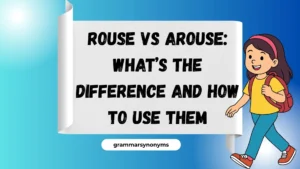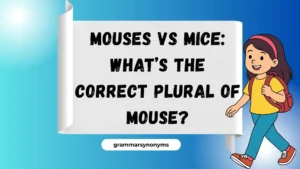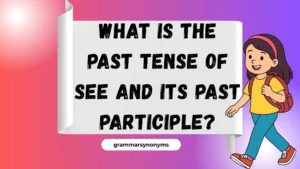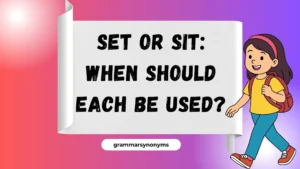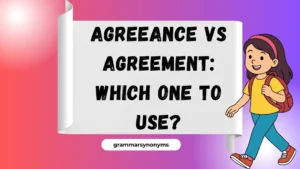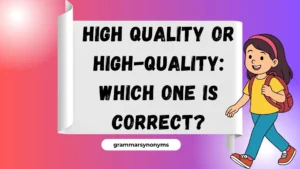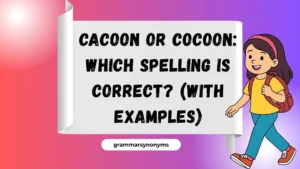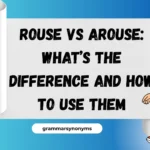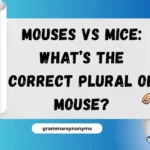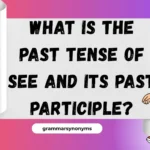When communicating with others, especially in situations where you might need to reach out unexpectedly, it’s important to use the right words. “Sorry to bother you” is often used, but sometimes it can feel a little too blunt or formal.
By finding alternative ways to express your thoughts, you can create a more empathetic tone and show that you care about the person’s time and space. This article will guide you through 30 other ways to say “Sorry to bother you” that can help you communicate with warmth, respect, and thoughtfulness.
What Does “Sorry to Bother You” Mean?
“Sorry to bother you” is a phrase typically used when we need to interrupt someone or ask for their time or attention. It expresses an apology for potentially causing inconvenience or disturbance. While this phrase is polite, it can sometimes feel overly apologetic or distant. Understanding its meaning helps us find more suitable alternatives that can suit various situations, whether personal or professional.
Is It Professional/Polite to Say “Sorry to Bother You”?
Yes, saying “Sorry to bother you” is generally seen as polite, especially in more formal settings. It signals that you recognize the potential disruption of the person’s time. However, depending on the context, it can feel either too formal or overly apologetic. In professional environments, it’s often used to show respect, but it can also be substituted with other expressions to sound more confident or considerate.
Pros and Cons
Pros:
- Shows respect for the other person’s time.
- Acknowledges potential interruption.
- Widely understood and used in various settings.
Cons:
- Can be perceived as overly apologetic.
- Might sound robotic or overly formal in casual settings.
- Sometimes, it can undermine confidence in communication.
Synonyms For Sorry to Bother You
- Excuse Me
- Pardon Me
- I Hope I’m Not Interrupting
- Sorry to Disturb You
- I Hate to Bother You, But
- I Know You’re Busy, But
- Would You Mind If I Ask?
- I Don’t Mean to Intrude, But
- I Just Need a Quick Moment of Your Time
- May I Have a Moment of Your Time?
- Excuse Me for Bothering You
- I Hope I’m Not Inconveniencing You
- Sorry to Trouble You
- I Apologize for Disturbing You
- Sorry to Take Up Your Time
- I Hope I’m Not Getting in the Way
- I Don’t Want to Be a Nuisance
- I Understand If You’re Busy, But
- If You Have a Moment, I’d Appreciate Your Help
- I Appreciate Your Time
- Sorry to Interrupt Your Workflow
- I Hope You’re Not Too Busy Right Now
- Forgive the Interruption, But
- I Appreciate You Taking the Time
- I Hope This Doesn’t Disrupt Your Flow
- Apologies for the Disturbance
- I Hate to Be a Burden
- If It’s Not Too Inconvenient
- Sorry to Take Your Attention Away
- I Hope I’m Not Taking Up Too Much of Your Time
1. “I Hope I’m Not Interrupting”
Definition: A polite way to check if it’s an inconvenient time to speak with someone.
Detailed Explanation: This phrase expresses concern that you may be disturbing the person and checks if it’s okay to continue.
Scenario Example: “Hi, I hope I’m not interrupting, but I just wanted to check if you had a minute to discuss something.”
Best Use: Casual to formal situations, particularly when approaching someone unexpectedly.
Tone: Polite, considerate.
Additional Notes: This alternative is less apologetic and more conversational.
2. “I Hope This Isn’t a Bad Time”
Definition: A way to inquire if it’s an appropriate time to speak.
Detailed Explanation: This phrase lets the other person know that you’re mindful of their time and don’t want to disturb them if they’re busy.
Scenario Example: “Hey, I hope this isn’t a bad time, but could we go over something quickly?”
Best Use: Good for both personal and professional interactions.
Tone: Respectful, thoughtful.
Additional Notes: Works well when unsure about someone’s schedule.
3. “Sorry to Take Up Your Time”
Definition: An acknowledgment that you’re asking for someone’s time, potentially disrupting their flow.
Detailed Explanation: This phrase shows humility and appreciation for the person’s time, while gently implying that the conversation may be taking them away from other things.
Scenario Example: “I’m sorry to take up your time, but I just need a quick answer to a question.”
Best Use: Great for professional settings when someone is busy.
Tone: Considerate, respectful.
Additional Notes: Best used when you are aware the person may have a lot on their plate.
4. “I Don’t Mean to Distract You”
Definition: A phrase to show you are aware of the person’s focus or task and don’t want to interfere.
Detailed Explanation: This expression acknowledges that you are possibly distracting someone from their current activity, showing awareness and respect.
Scenario Example: “I don’t mean to distract you, but could I ask a quick question about the project?”
Best Use: Professional, when the other person is clearly focused.
Tone: Respectful, considerate.
Additional Notes: It’s effective when addressing people who seem engaged in their work.
5. “I Apologize for the Inconvenience”
Definition: A formal way to apologize for potentially causing trouble or disturbance.
Detailed Explanation: This phrase offers a more formal and sincere apology for any inconvenience caused by your request.
Scenario Example: “I apologize for the inconvenience, but could I borrow a moment of your time to discuss this issue?”
Best Use: More suitable for professional or formal interactions.
Tone: Polite, formal.
Additional Notes: This is ideal when you know you’re asking for something that could be seen as a hassle.
6. “I Hope I’m Not Disturbing You”
Definition: A gentle phrase to check if you are causing any disruption.
Detailed Explanation: This expression softens the approach by showing concern for the person’s peace and quiet.
Scenario Example: “I hope I’m not disturbing you, but do you have a second to chat about the report?”
Best Use: Casual to professional settings, especially when the person may be focused on something else.
Tone: Gentle, polite.
Additional Notes: This phrase is excellent when you want to be extra considerate.
7. “I Hope I’m Not Interrupting Your Day”
Definition: An empathetic way to express that you understand you might be causing a disruption to someone’s schedule.
Detailed Explanation: This phrase shows an awareness of the person’s day and that you’re mindful of their time.
Scenario Example: “I hope I’m not interrupting your day, but could you help me with this?”
Best Use: Best when approaching someone who looks busy or in the middle of something.
Tone: Warm, understanding.
Additional Notes: It works well in both work and personal contexts.
8. “If It’s Not Too Much Trouble”
Definition: A polite, considerate way to ask for help or request something without being too demanding.
Detailed Explanation: This phrase softens the request by implying you are not expecting the person to go out of their way.
Scenario Example: “If it’s not too much trouble, could you please review this document for me?”
Best Use: Ideal for situations where you don’t want to impose.
Tone: Polite, respectful.
Additional Notes: It adds a layer of thoughtfulness to your request.
9. “I Hate to Interrupt, But”
Definition: A way to express that you understand you are disturbing someone but need to address something urgently.
Detailed Explanation: This expression indicates that you dislike interrupting, which can make your request sound more empathetic and considerate.
Scenario Example: “I hate to interrupt, but could you take a look at this before the meeting?”
Best Use: Professional settings, particularly in meetings.
Tone: Apologetic, polite.
Additional Notes: It shows humility and understanding of the interruption.
10. “I Know You’re Busy, But”
Definition: A way to acknowledge that the person may have a lot on their plate and that you respect their time.
Detailed Explanation: This phrase recognizes the potential busyness of the person you’re addressing while still making your request.
Scenario Example: “I know you’re busy, but would it be possible to get your feedback on this by the end of the day?”
Best Use: Professional, especially when reaching out to a colleague or superior.
Tone: Respectful, empathetic.
Additional Notes: It works well in situations where the person might have a heavy workload.
11. “Excuse Me for Bothering You”
Definition: A polite phrase to apologize for disturbing or interrupting someone.
Detailed Explanation: This phrase is used to show respect while acknowledging that you might be interrupting someone’s task or time.
Scenario Example: “Excuse me for bothering you, but I need some clarification on this issue.”
Best Use: Casual to formal situations where a brief interruption is needed.
Tone: Respectful, polite.
Additional Notes: A classic alternative that softens the request while acknowledging the potential disturbance.
12. “I Hope I’m Not Inconveniencing You”
Definition: A more formal way of saying you’re mindful of possibly disturbing someone’s routine or task.
Detailed Explanation: This phrase is an empathetic way of expressing that you are aware of your potential disruption but still need assistance.
Scenario Example: “I hope I’m not inconveniencing you, but could you help me with this?”
Best Use: Professional or formal settings when you need to acknowledge the person’s busy schedule.
Tone: Considerate, respectful.
Additional Notes: Works well in work environments when approaching superiors or colleagues.
13. “Sorry to Trouble You”
Definition: An apology for creating an inconvenience, particularly when requesting someone’s time or help.
Detailed Explanation: This phrase is commonly used to show that you understand your request might cause some trouble.
Scenario Example: “Sorry to trouble you, but could you provide some guidance on this project?”
Best Use: Professional settings when asking for help from someone who may be busy.
Tone: Polite, apologetic.
Additional Notes: It conveys humility and respect for the other person’s time.
14. “I Apologize for Disturbing You”
Definition: A formal and sincere apology used when interrupting or requesting someone’s time.
Detailed Explanation: This phrase conveys respect for the other person and shows that you understand the potential disturbance your request may cause.
Scenario Example: “I apologize for disturbing you, but could you clarify this for me?”
Best Use: Suitable for professional or formal settings when you need to reach out to someone unexpectedly.
Tone: Formal, apologetic.
Additional Notes: Effective in situations where a higher level of respect or humility is needed.
15. “Sorry to Take Up Your Time”
Definition: A way of apologizing for the request you are making, acknowledging the person’s time.
Detailed Explanation: This phrase is a softer way of asking for help or attention while apologizing for possibly taking their time away from other tasks.
Scenario Example: “Sorry to take up your time, but could you review this report quickly?”
Best Use: Ideal in both casual and professional settings when you recognize the person’s busy schedule.
Tone: Polite, respectful.
Additional Notes: A good way to ask for help without sounding demanding.
16. “I Hope I’m Not Getting in the Way”
Definition: A gentle way of ensuring that your request isn’t interfering with someone’s work or schedule.
Detailed Explanation: This phrase expresses an understanding that you might be causing an interruption or distraction.
Scenario Example: “I hope I’m not getting in the way, but I need a quick moment of your time.”
Best Use: Casual or professional settings, especially when speaking to someone deeply involved in something.
Tone: Empathetic, considerate.
Additional Notes: It works well when the person is visibly busy or focused.
17. “I Don’t Want to Be a Nuisance”
Definition: A phrase to express that you don’t want to inconvenience someone or be an imposition.
Detailed Explanation: This expression communicates your awareness of your potential impact on someone’s time or space, and it softens the request.
Scenario Example: “I don’t want to be a nuisance, but could I ask for your opinion on something?”
Best Use: Casual settings, especially when you’re aware the person might be busy or occupied.
Tone: Humble, respectful.
Additional Notes: This phrase implies a desire not to annoy, adding a touch of sensitivity.
18. “I Understand If You’re Busy, But”
Definition: A considerate way of acknowledging the person may have a busy schedule, but still making a polite request.
Detailed Explanation: This phrase is empathetic and shows that you respect the person’s time while still asking for something.
Scenario Example: “I understand if you’re busy, but could you help me with this when you get a chance?”
Best Use: Ideal in professional contexts, especially with someone who likely has a packed agenda.
Tone: Empathetic, respectful.
Additional Notes: It softens the request by recognizing the other person’s priorities.
19. “If You Have a Moment, I’d Appreciate Your Help”
Definition: A way of asking for assistance, while acknowledging the person may not have much time.
Detailed Explanation: This phrase conveys humility and shows appreciation for the person’s time. It’s a great way to politely ask for help when you understand they may be busy.
Scenario Example: “If you have a moment, I’d appreciate your help with this question.”
Best Use: Professional or casual settings when someone’s time is valuable.
Tone: Considerate, polite.
Additional Notes: This is especially useful when you want to show gratitude for even the smallest amount of time.
20. “I Appreciate Your Time”
Definition: A phrase to express gratitude for the other person’s time, often before making a request.
Detailed Explanation: This phrase is used to acknowledge that you value the person’s time, especially when you’re about to ask for their help or attention.
Scenario Example: “I appreciate your time, and I’d like to discuss this report with you.”
Best Use: Suitable for professional settings or when you’re speaking to someone who is busy.
Tone: Grateful, respectful.
Additional Notes: This can be used to open or close conversations where you acknowledge the value of their time.
21. “Sorry to Interrupt Your Workflow”
Definition: An apology for interrupting someone while they are focused on a task or project.
Detailed Explanation: This phrase specifically targets the idea that you are disrupting someone’s process or flow.
Scenario Example: “Sorry to interrupt your workflow, but could I ask a quick question?”
Best Use: Professional contexts, particularly when speaking to colleagues in the middle of a task.
Tone: Respectful, apologetic.
Additional Notes: Useful when you need to approach someone during deep work or concentration.
22. “I Hope You’re Not Too Busy Right Now”
Definition: A polite inquiry to see if it’s a good time to ask something or initiate a conversation.
Detailed Explanation: This phrase acknowledges that the person may be busy and checks if it’s an opportune moment to speak.
Scenario Example: “I hope you’re not too busy right now, but I need to go over a few things with you.”
Best Use: Casual to professional settings, especially when you are unsure about the person’s schedule.
Tone: Considerate, polite.
Additional Notes: It works well when you want to be considerate of someone’s current workload.
23. “Forgive the Interruption, But”
Definition: A polite way of apologizing for interrupting someone and asking for their attention.
Detailed Explanation: This expression shows humility and respect, acknowledging that the interruption may be inconvenient.
Scenario Example: “Forgive the interruption, but could you clarify something for me?”
Best Use: Professional or formal settings where you need to speak with someone without disrupting their focus.
Tone: Formal, respectful.
Additional Notes: This is an excellent alternative for more formal, business-oriented environments.
24. “I Appreciate You Taking the Time”
Definition: A phrase used to express gratitude to someone for giving you their attention or help.
Detailed Explanation: This phrase conveys appreciation for the person’s willingness to engage or assist, acknowledging that their time is valuable.
Scenario Example: “I appreciate you taking the time to meet with me today.”
Best Use: Ideal when wrapping up a conversation or thanking someone for their assistance.
Tone: Grateful, polite.
Additional Notes: It’s a great way to express gratitude after making a request.
25. “I Hope This Doesn’t Disrupt Your Flow”
Definition: A considerate phrase acknowledging that your request may interrupt someone’s concentration or progress.
Detailed Explanation: This phrase is used when you want to ensure that you’re not causing any disruption to the person’s work or routine.
Scenario Example: “I hope this doesn’t disrupt your flow, but could you help me out with this?”
Best Use: Great for professional settings when approaching someone focused on a task.
Tone: Considerate, empathetic.
Additional Notes: Ideal for situations where you want to be respectful of someone’s focus.
26. “Apologies for the Disturbance”
Definition: A formal and polite apology for causing an interruption or disturbance.
Detailed Explanation: This phrase acknowledges that your action or request may be inconvenient and apologizes for the disruption.
Scenario Example: “Apologies for the disturbance, but may I ask you to review this document?”
Best Use: Formal settings, particularly when you need to interrupt someone who is busy.
Tone: Apologetic, respectful.
Additional Notes: This phrase is ideal when the situation calls for a more formal tone.
27. “I Hate to Be a Burden”
Definition: An expression of humility, acknowledging that your request may place some strain on the person’s time or resources.
Detailed Explanation: This phrase is used when you are asking for a favor and want to ensure you are not asking too much.
Scenario Example: “I hate to be a burden, but could you assist me with this task?”
Best Use: Casual to formal settings, especially when asking for a favor.
Tone: Humble, considerate.
Additional Notes: It’s important to use this phrase only when necessary, as it can come across as overly apologetic.
28. “If It’s Not Too Inconvenient”
Definition: A polite way of requesting help or action while acknowledging that it may cause some inconvenience.
Detailed Explanation: This phrase is used when you want to soften your request and acknowledge that you understand the potential inconvenience.
Scenario Example: “If it’s not too inconvenient, could you please send me the report by the end of the day?”
Best Use: Professional settings, especially in cases where the person’s time may be limited.
Tone: Considerate, polite.
Additional Notes: It shows respect for the person’s schedule and work.
29. “Sorry to Take Your Attention Away”
Definition: A polite way of acknowledging that you are diverting someone’s focus from their current task.
Detailed Explanation: This phrase expresses an apology for redirecting someone’s attention when they may be focused on something important.
Scenario Example: “Sorry to take your attention away, but could I ask a quick question?”
Best Use: Professional or personal situations when you need someone’s focus but don’t want to disrupt their work.
Tone: Apologetic, respectful.
Additional Notes: It’s useful when you need to interrupt someone’s thought process or concentration.
30. “I Hope I’m Not Taking Up Too Much of Your Time”
Definition: A phrase to ensure that your request or conversation is not taking too much of the other person’s time.
Detailed Explanation: This phrase shows an understanding that the person may be busy, and you don’t want to impose.
Scenario Example: “I hope I’m not taking up too much of your time, but I’d like to go over this quickly.”
Best Use: Professional or personal settings when the person may be on a tight schedule.
Tone: Polite, considerate.
Additional Notes: It’s a great way to politely close a conversation when the person might be pressed for time.
Conclusion
Finding the right way to express “Sorry to bother you” can help you communicate with warmth, consideration, and professionalism. By using these alternatives, you can soften your approach, show respect for the other person’s time, and maintain a polite and thoughtful tone. Whether in professional, casual, or formal settings, choosing the right phrase ensures your message is received positively.
Each of these alternatives carries a unique nuance—some being more formal and professional, while others are casual and friendly. By selecting the right phrase, you can maintain a strong, respectful, and effective communication style that fosters positive interactions.
FAQs
1. What Does “Sorry to Bother You” Mean?
“Sorry to Bother You” is a polite way to acknowledge that you are interrupting or requesting someone’s time. It conveys respect and humility, ensuring the other person knows you are mindful of their schedule.
2. Is It Professional/Polite to Say “Sorry to Bother You”?
Yes, it is generally polite and professional, but depending on the situation, other alternatives might sound more thoughtful and considerate. For formal business environments, phrases like “I apologize for the disturbance” or “I hope I’m not inconveniencing you” may sound more professional.
3. What Are the Pros and Cons of Saying “Sorry to Bother You”?
Pros:
- Shows politeness and consideration
- Acknowledges the other person’s time
- Softens a request or interruption
Cons:
- Can sound overly apologetic if used too often
- May undermine your confidence in professional settings
- Some alternatives might sound more natural and engaging

“Emma Rose at Grammar Synonyms is your go-to expert for everything related to language and expression. Whether you’re refining your grammar, searching for the perfect synonym, or looking for creative ways to improve your writing, Emma Rose provides the tools and inspiration you need. With a wide range of resources designed to elevate your communication, Grammar Synonyms helps you find just the right words to make every sentence shine.

